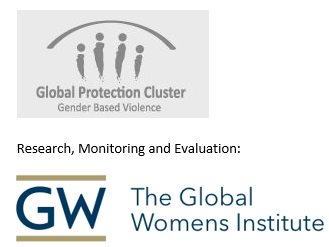Distress and Secondary Trauma – In conflict and post-conflict settings, data collectors are often from the same affected communities as the respondents and may have experienced many of the same traumas as those who are being interviewed. Even if the enumerator has not faced violence, listening to stories of GBV and trauma can affect anyone. The mental health needs of the data collection team should be planned ahead of time. Training periods may need to be extended in conflict and post-conflict settings to meet the mental health needs of enumerators who have been exposed to traumatic events and violence. Invest in the health, well-being and professional development of the data collection team ahead of time to avoid distress and secondary trauma.
To minimize the risks of distress and secondary trauma, conduct daily and weekly debriefs. Give enumerators the chance to withdraw from data collection activities without prejudice and try to train backup enumerators in case someone does withdraw. Organize social activities and allocate time for de-stressing periods. Allow for days off between data collection periods. If needed, assign alternative duties – interviewing, data quality checking, data entry, etc. Provide clear contracts and payment schedules to avoid additional monetary stress on the data collectors. Another point to consider is how the payment of enumerators affects their household and community dynamics.[1]
Political/Military Interference - Research in conflict settings can pose serious risks to the researchers as they may be targeted or harassed for participating in the research through political or military interference. To minimize the risks of political and military interference, have key government officials advise and approve the research and maintain contact information for national and local leaders to call on if harassment occurs.
Security - The physical security of the data collection team may be at risk during travel to insecure locations. To mitigate security risks, research teams should check security on a daily basis. Research teams should coordinate with the United Nations Department of Safety and Security (UNDSS) or other security services to get up to date information. Network with other NGOs/local organizations working in the areas to get up to date information. Have phones or satellite phones (with credit) with every team to call in if there are issues.
[1] GWI and WHO. 3-4 Feb 2015. Conducting Population-Based Surveys on Gender-Based Violence in Conflict and Humanitarian Settings. Experts Group Meeting. Washington DC.
